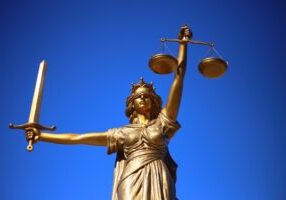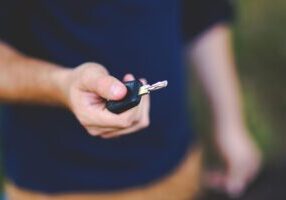STOP THE TRAFFICK!
“Modern slavery.” It sounds like a paradox. Hasn’t humanity progressed? Didn’t we abandon this barbaric practice centuries ago?
Didn’t Christian reformers like William Wilberforce legislate against such cruelty over 211 years ago? So we had thought. But, with over 40.3 million enslaved people across the world, human trafficking is back and it is rife today.
Regardless of nationality, victims are systematically stripped of their identity, battered into gruesome submission, and made to perform humiliating sexual acts on up to 30 strangers every night. Most are held in makeshift jail cells, forced to take heavy doses of illegal drugs, and monitored very closely. On average, victims are thrown into such ghastly oppression at 13-years-old. Some are abducted outright, while others are lured out of poverty, romantically seduced, or sold by their families.
Trafficking in South Africa
Between 28 000 to 38 000 Children are currently being prostituted in South Africa (National Centre for Justice and Rule of Law, 2003).
Victims are often recruited from rural areas or informal settlements and transported to the urban centres of Johannesburg, Cape Town, Pretoria, Bloemfontein, and Durban. (IOM Report on Internal Trafficking in South Africa, 2008).
Boys under eighteen are increasingly lured into sexual exploitation and used for pornography. (IOM, 2008).
West African crime syndicates operate in Pretoria, Port Elizabeth, Johannesburg, and Bloemfontein, and traffick local, black South African females into the sex trade. (IOM, 2008).
The Eastern Cape, Mpumalanga and Limpopo are the main “recruitment” areas for victims of trafficking. (IOM, US Aids Research report, Die Burger, 2008).
Trafficking involves the victim being:
Tricked – seduced or deceived.
Transported – to another city or across borders to other countries.
Trapped – possibly by physical force or by being drugged into submission, or by death threats and removal of passports.
Used – exploited, usually for the purposes of humiliating sexual acts.
“Sometimes girls are told there are good jobs in the city.”
Women of all ages are promised good jobs by traffickers away from their homes. Often it is friends, and even family members, who offer to pay for the travelling costs, passports and accommodation.
The community allows the trafficker to take these girls because they think it is a good opportunity for them. The traffickers also promise nice clothes, jewelry and expensive gifts.
Some traffickers put adverts in newspapers promising good jobs, training and accommodation. The opportunity offered to the girls does not exist and they are tricked.
“When they get to the city, their ID documents are taken from them.”
When a girl arrives at the new job, the trafficker asks her to give her ID or passport for safe keeping. The girl thinks it is the right thing to do. If the girl is from another country she can now not prove that she is legally in the country. She is now without her papers and also doesn’t have the job that she was promised. This makes her too scared to go to the police.
“These girls are told, you owe us money.”
The trafficker tells the girl that she can make the money by working as a prostitute. If she says she does not want to do it, the trafficker will beat and rape her. The trafficker will even take away food and water. Even if she starts working as a prostitute, the money she makes is never enough to pay back the trafficker.
“These girls are told if you tell the police, we will hurt you and your family.”
Sometimes the trafficker tells the girl that they will hurt her family if she tells someone what they are doing. If the girl has a child, the trafficker will keep the child from her and tell her to go to the street and work as a prostitute. The trafficker tells her that if she does not do it she will never see her child again.
“These girls cannot do what they want anymore.”
The trafficker never takes his eye off the girl. The girl is taken everywhere and she cannot be alone. She now has to do everything the trafficker tells her to do. The trafficker makes the girl so scared that she becomes afraid to talk to anyone about the problem she has.
“They start taking drugs to forget what is happening to them.”
The life of being a prostitute is very hard. The trafficker gives the girl drugs so that she will do what they tell her to do.
She starts taking drugs all the time to take the pain away. Now the girl becomes addicted to drugs.
Do you know one of these girls?
Who can I call if I am in danger or to whom can I report suspected trafficking incidents?
National helpline: 0800 222 777
What can I do to stop human trafficking?
Educate your community on how to avoid being trafficked. Invite Africa Christian Action (021 – 689 4480) or STOP Trafficking of People (081 720 7181) to present an anti-trafficking awareness presentation to your school, church or community group. Report Prostitution to the National Freedom Network
The Vice Squad are a unit of the Cape Town Metro Police, tasked specifically with cracking down on the exploitative practice of prostitution. Over the last few years, they have conducted numerous raids on brothels in the Cape Town area, and have helped to uncover several cases of trafficking and child prostitution. They have been able to shut down some brothels for not having a business licence. Trafficked victims are taken to shelters and child prostitutes are restored to their families where appropriate.
Prostitution is still illegal in South Africa according to the Sexual Offences Act, although this law is rarely enforced by SA police.
If you suspect that a house in your area may be operating as a brothel, or if streets in your neighbourhood are effected by prostitution (especially if you see girls under the age of 18 being prostituted), please report this to the National Freedom Network Helpline: 0800 222 777.
Invite a Speaker
Invite a speaker from Africa Christian Action (021 6894480), STOP Trafficking of People (081 7207181), or Straatwerk (021 9308055) to motivate and mobilise your congregation to prayer and action on this issue.



